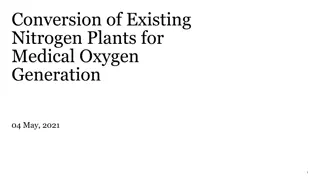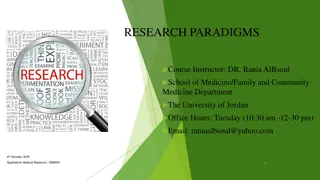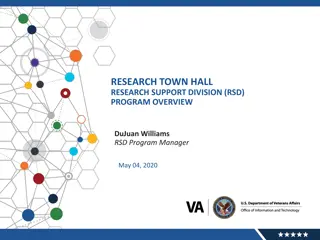
Medical Informatics Research Focus in Saudi Arabia
Explore the research focus in medical informatics in Saudi Arabia led by Dr. Ahmed Albarrak. Understand the importance of knowledge management in healthcare and examples of research areas in medical informatics such as evidence-based medicine, tele-health, and public health. Gain insights into the distinction between data, information, and knowledge in the context of medical informatics.
Download Presentation

Please find below an Image/Link to download the presentation.
The content on the website is provided AS IS for your information and personal use only. It may not be sold, licensed, or shared on other websites without obtaining consent from the author. If you encounter any issues during the download, it is possible that the publisher has removed the file from their server.
You are allowed to download the files provided on this website for personal or commercial use, subject to the condition that they are used lawfully. All files are the property of their respective owners.
The content on the website is provided AS IS for your information and personal use only. It may not be sold, licensed, or shared on other websites without obtaining consent from the author.
E N D
Presentation Transcript
1 RESEARCH FOCUS IN MEDICAL INFORMATICS IN SAUDI ARABIA Ahmed Albarrak, PhD, MSc. Professor of Medical Informatics Founding Chairman, Medical Informatics and e-learning, College of Medicine, King Saud University Founding Former Dean of Health Sciences College, and Vice Rector for Planning Quality and Development, SEU albarrak@ksu.edu.sa @aalbarrak2
2 Outline Definition Knowledge management Why Knowledge management in Healthcare Examples of research in medical informatics: Evidence based medicine Medical records Tele-health Students Public health What is next? Facts and conclusions
Medicalinformatics "Medical informatics is a rapidly developing scientific field that deals with the storage, retrieval, and optimal use of biomedical information, data, and knowledge for problem solving and decision making." Blois, M.S., and E.H. Shortliffe. in Medical Informatics: Computer Applications in Health Care, 1990, p. 20. "Medical informatics is the application of computers, communications and information technology and systems to all fields of medicine - medical care, medical education and medical research. definition by MF Collen (MEDINFO '80, Tokyo, later extended).
4 Knowledge Data, information and knowledge are often used interchangeably, however, they are not the same Data, in itself is not knowledge, nor is information. Data is without a meaningful relation to anything else (Bellinger, 2004). Knowledge is the full utilization of information and data, with the potential of people's skills, competencies, .. (Grey, 2009*7)
5 Knowledge Knowledge Involves interpreting information received, adding relevance and context to clarify the insights the information contains (Audit Commission, 2007) Knowledge: is the understanding and interpretation of information and its settings within a meaningful context There are numerous theories existence regarding not only the creation of knowledge, but also the different types of knowledge that exist. Cook and Brown (1999) define four types of knowledge: individual/explicit; individual/tacit; group/explicit; group/tacit.
6 Data? Data: data are numbers, words or images that have yet to be organised or analysed to answer a specific question (Audit Commission, 2007). What makes numbers, words and images all data? rawness. No exact meaning or context. Information: Information is the result of processing, manipulating and/or organising data or combinations of data to answer question.
7 Environment public healthKM
9 Flood ofInformation Huge gap in data acquisition and information knowledge capacity
1 0 Data knowledge -utilization 60000 50000 40000 data knowledge 30000 utilization 20000 10000 0
1 1 Institute of Medicine (IOM) estimated that around 98,000 patients die each year as a consequence of preventable errors. Likewise, a study of two UK hospitals found that 11% of admitted patients experienced adverse events of which 48% of these events were most likely preventable if the right knowledge was applied. The under-utilization of healthcare knowledge contributes to improper clinical decisions, medical errors, under-utilization of resources and raise in healthcare delivery costs
1 2
1 3
1 4 Evidence based medicinedefinition: Evidence based medicine (EBM) is the integration of best research evidence with clinical expertise and patient values. Patient Concerns Best researcEhBM evidence Clinical Expertise
1 5 History ofEBM The name of EBM appeared in 1992 by group led by Gordon Guyatt at McMaster University in Canada. Since then the number of articles about evidence based practice has grown exponentially from one publication in 1992 to about 1000 in 1998 and international interest has led to the development of six evidence based journals that summarize the most relevant studies in clinical practice and have a combined worldwide circulation of over 175000.






















